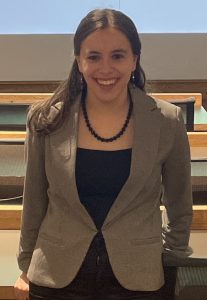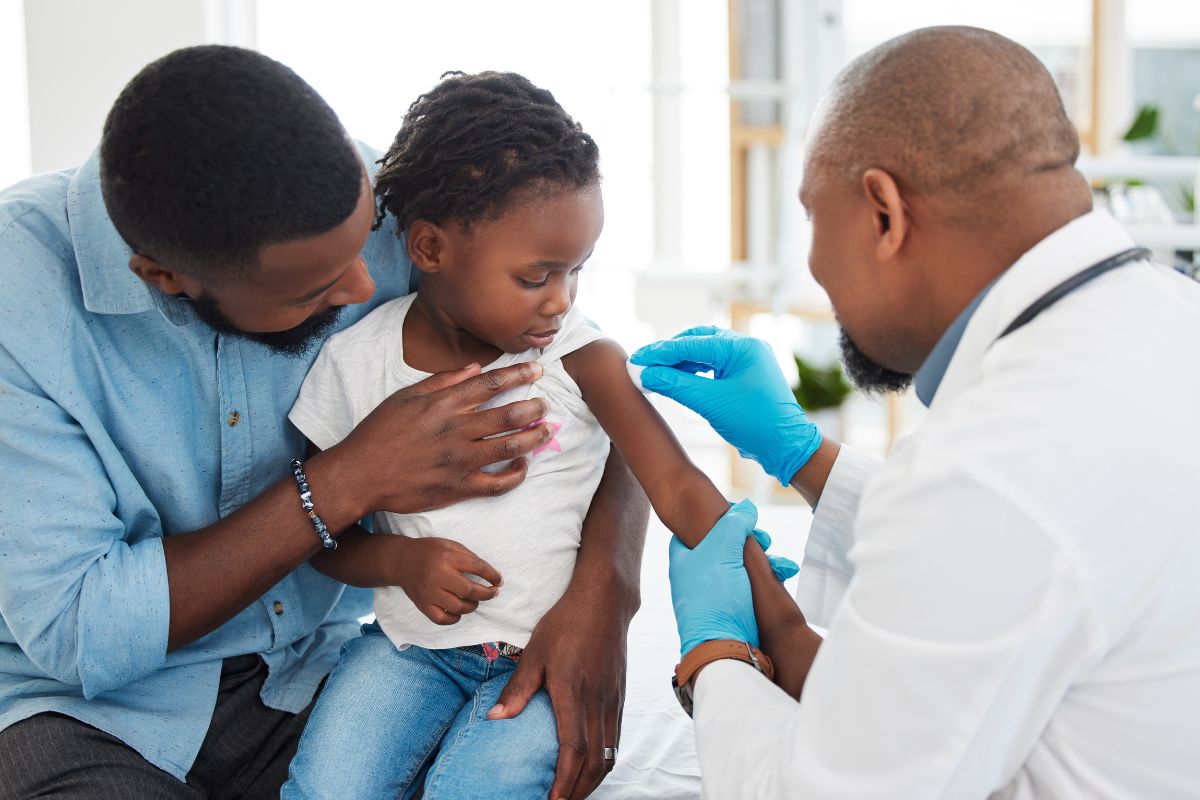Reminder: Measles Vaccines Protect Those Who Cannot Protect Themselves
March 18/2024
With measles cases popping up across Canada, U of T researchers explain why getting vaccinated helps those who can’t.
By Ishani Nath
Measles cases are popping up across Canada, and with low vaccination rates and travellers returning from March Break, health officials are concerned this preventable disease may continue to spread.
“Measles is such a big concern because it is one of the most contagious viruses that we know of,” explains Janna Shapiro, a postdoctoral fellow at the Centre for Vaccine Preventable Diseases (CVPD) at the Dalla Lana School of Public Health. “That means that in a population that doesn’t have a lot of immunity, a few cases can quickly grow into an outbreak.”
While some experience symptoms like a runny nose, fever, red eyes and a rash, measles can also lead to more serious complications like ear infections, pneumonia, brain swelling and the possibility of death.
Health officials are urging Canadians to contact a physician and check their vaccination status to ensure they have received the recommended doses of their measles vaccine, which is administered either as an MMR vaccine, which protects against measles, mumps and rubella, or an MMRV vaccine, which also protects against chickenpox. Two doses of the vaccine are more than 95 per cent effective at preventing measles. And Shapiro emphasizes that getting vaccinated not only protects individuals, but also those who cannot get vaccinated.

Janna Shapiro
“Measles can have really severe consequences in healthy people, but people with underlying medical conditions are at greatly increased risk,” she says. Understanding how to protect individuals who are not healthy, specifically children who are immunocompromised, from vaccine preventable diseases is the focus of Shapiro’s research.
“Immunocompromised” is an umbrella term that means that at least one part of an individual’s immune system isn’t working properly, possibly due to genetics, medication or an underlying condition. Individuals who are immunocompromised are therefore more vulnerable to getting measles and experiencing serious complications.
Shapiro’s research looks at how to protect children with leukemia, which requires treatment that supresses the immune system, from vaccine preventable diseases like measles.
One of the challenges is that the vaccine for measles is a live attenuated vaccine, meaning it contains a weakened version of the measles virus to teach the body how to fight the disease. U of T professor of immunology Tania Watts, Shapiro’s supervisor, explains that because measles vaccines contain the live virus, “many immunocompromised people cannot have the vaccine, and this is all the more reason why healthy people need to be vaccinated not only to protect themselves but to protect the vulnerable.”
Shapiro became interested in investigating this area of vaccinology after noticing that vaccine recommendations are typically targeted towards healthy adults and vaccines tend to be tested on “healthy, mostly white populations between the ages of 18 and 49.” That leaves questions about how vaccines can protect the growing population that falls outside of those criteria. Are children who received measles vaccines before becoming immunocompromised still protected? Is there a way to vaccinate immunocompromised children safely, and if so, when should that happen?
“We have these tools, but we don’t know how to use them effectively in this population,” she says. In addition to leukemia patients, Shapiro has researched how different vaccines can protect older adult populations, pregnant individuals and is now investigating how to protect children with arthritis from chickenpox (varicella).

(Photo: Canva)
Watts, who is also a member of the CVPD, says this research will help us all stay better protected going forward. “With recent outbreaks of measles in Canada, it is even more important to understand the state of immunity to measles in vulnerable populations and to have guidelines of who can be vaccinated and when this should be done with respect to their treatments.”
In the meantime, the best way to protect against measles is to get vaccinated if you can, says Shapiro. “If you can create a shield around a child who’s immunocompromised, so that none of the people who live with them or go to school with them can get infected, that child is protected, regardless of how well their immune system is functioning.”
To learn more about getting vaccinated against measles, your immunization status and where to get vaccinated, contact your physician or local public health unit.